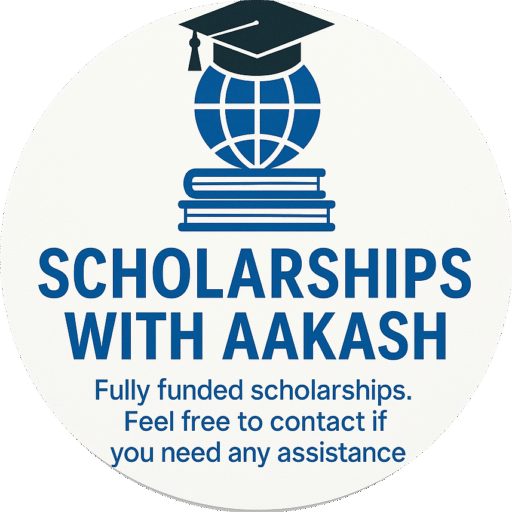Are you passionate about cancer biology and interested in how natural compounds like dietary isothiocyanates (ITCs) can boost anti-cancer drug efficacy? The University of East Anglia (UEA) is offering a fully funded PhD in Triple Negative Breast Cancer Research through its Norwich Medical School. This exciting opportunity will explore novel treatment strategies for one of the most aggressive and hard-to-treat forms of breast cancer.
🔬 Project Title:
Mechanism of Interactions Between Dietary Isothiocyanates and Anti-Cancer Drugs in Triple Negative Breast Cancer
📍 Location: Norwich, United Kingdom
🏛 University: University of East Anglia (UEA), Norwich Medical School
👨🏫 Primary Supervisor: Prof. Yongping Bao
📧 Email: Y.Bao@uea.ac.uk
📅 Start Date: 1 February 2026
🌍 Open to: Students Worldwide
💰 Funding: Full tuition (Home-fee rate) + £20,780 annual stipend + £1,000 research training support
🎯 Focus Keyword: PhD in Triple Negative Breast Cancer Research
This PhD in Triple Negative Breast Cancer Research investigates the synergistic effects of dietary isothiocyanates (like sulforaphane and phenethyl isothiocyanate) in combination with anti-cancer drugs such as sorafenib and triptolide. These combinations may reduce drug resistance, enhance efficacy, and improve treatment outcomes in triple negative breast cancer (TNBC)—a highly aggressive and therapy-resistant cancer subtype.
🧠 Why Focus on Triple Negative Breast Cancer?
Triple negative breast cancer (TNBC) is defined by the lack of estrogen receptor (ER), progesterone receptor (PR), and HER2 expression, making it unresponsive to hormonal or HER2-targeted therapies. TNBC accounts for about 15–20% of breast cancer cases but is associated with higher recurrence rates, metastasis, and poor prognosis.
This makes TNBC an urgent target for innovative combinational therapies that can both increase drug effectiveness and overcome resistance.
🥦 Role of Isothiocyanates in Cancer Prevention
Isothiocyanates (ITCs) are naturally occurring compounds found in cruciferous vegetables like broccoli, cabbage, and Brussels sprouts. These compounds are known for their:
- Antioxidant and detoxification properties
- Hormetic effects (stimulate at low dose, inhibit at high dose)
- Ability to inhibit tumor progression and angiogenesis
- Potential to sensitize cancer cells to chemotherapy
Previous studies by Prof. Bao’s lab have shown that ITCs such as sulforaphane and phenethyl isothiocyanate can synergize with anti-cancer drugs like sorafenib and dasatinib, boosting their effects while reducing required doses【1】【2】【5】.
🧪 What Will the PhD Project Involve?
The project is structured in multiple phases:
1. In Vitro Screening
- Cell lines: MDA-MB-231 (TNBC), MCF-7 (ER+), and MCF-10A (normal breast cells)
- Assays: Cell viability, colony formation, and flow cytometry
- Goal: Determine which combinations (e.g., ITCs + sorafenib) show synergy using a Combination Index
2. Functional Assays
- Assess effects on migration, invasion, and angiogenesis
- Examine influence on the tumor microenvironment (TME)
- Compare single vs. combined treatments
3. Molecular Mechanism Analysis
- Techniques: qRT-PCR, Western blotting, RNA-seq, antibody arrays
- Investigate how ITCs modulate drug signaling pathways and gene expression profiles
4. Animal Model Studies
- Mouse xenograft models
- Test combination therapy in vivo for tumor size reduction, toxicity, and resistance mechanisms
💡 Research Impact
This project aims to:
- Improve understanding of natural phytochemicals in cancer therapy
- Explore the translational potential of dietary compounds in oncology
- Offer new insights for clinical trials using ITC-drug combinations
- Provide effective and less toxic treatments for TNBC patients
Ultimately, this PhD in Triple Negative Breast Cancer Research could contribute to global cancer prevention strategies and public health improvements, especially for high-risk populations.
📋 Eligibility & Entry Requirements
✅ Minimum 2:1 undergraduate degree in Biological Sciences, Biomedicine, Molecular Biology, Cell Biology, or related disciplines
✅ Strong understanding of cancer biology and molecular techniques
✅ Open to UK and international students
🔍 Note: International students must self-fund the difference in tuition (details here)
💸 Funding Details
This 3-year PhD project is jointly funded by the Cancer Prevention Research Trust and UEA. The package includes:
- 📚 Home tuition fees fully covered
- 💷 Annual stipend of £20,780
- 🧪 £1,000 research training support/year
- 🌍 International applicants are welcome (with self-funded fee gap)
📨 How to Apply
To apply for this PhD in Triple Negative Breast Cancer Research, send your Expression of Interest to:
📧 Prof. Yongping Bao
✉️ Email: Y.Bao@uea.ac.uk
Include:
- 📄 CV
- 📝 Brief cover letter/motivation statement
- 🎓 Academic transcripts
- 📞 Contact info of 2 referees
📅 Application Deadline: Rolling until filled. Early application is highly recommended.
🔗 Useful Links
- 🔍 Professor Profile – Prof. Yongping Bao
- 📚 UEA Tuition Fee Info
- 🌐 More opportunities: Scholarships with Aakash
💬 Need Help Applying?
If you need support with:
- 🧪 Research proposal writing
- 📑 CV formatting
- ✍️ Cover letter/SOP creation
- 📤 Application submission
📧 Reach out to us: scholarshipswithaakash@gmail.com
We’ll guide you through every step of your PhD journey!
🙌 Support Us on Social Media
If you found this opportunity helpful, show your support by following us:
🔔 YouTube
📘 Facebook
📸 Instagram
🎵 TikTok
🧵 Threads
📲 WhatsApp Channel


Thank you for your sharing. I am worried that I lack creative ideas. It is your article that makes me full of hope. Thank you. But, I have a question, can you help me? https://accounts.binance.info/register-person?ref=IHJUI7TF
please contact on
scholarshipswithaakash@gmail.com